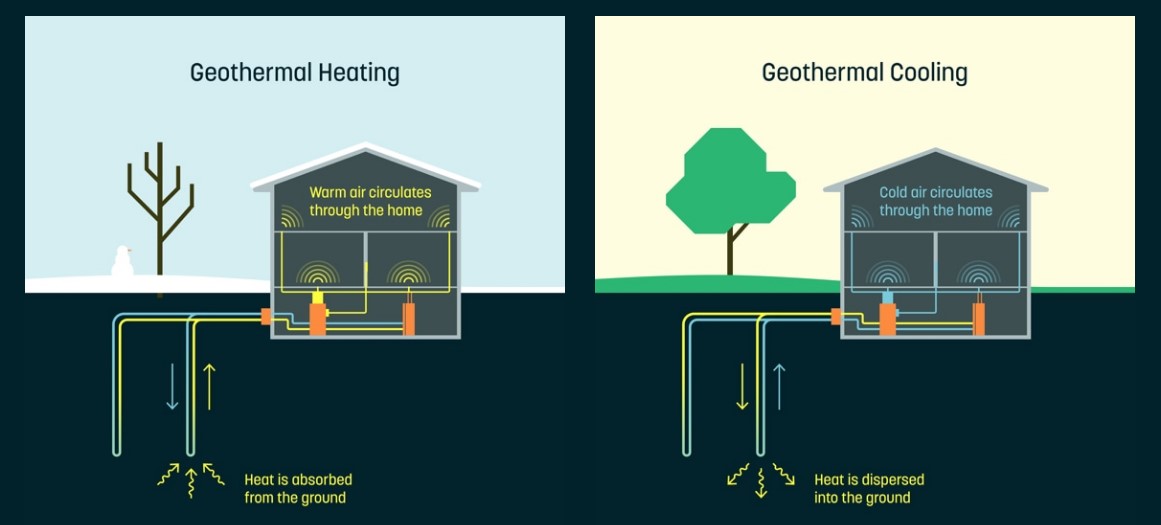Ex-Google X develops low cost geothermal systems for homes

Geothermal energy is considered “green”, that is, its production has a minimal impact on the environment. Photo source: Getty Images
"Green" energy is now widely known. Usually, when it comes to alternatives to traditional sources, solar farms, wind turbines and in some cases biogas stations are implied. However, there are other sources of energy whose potential is quite high. For example, geothermal energy. People talk and write about it for a long time, there is a rather detailed article, for example, in the Children's Encyclopedia, released in the USSR in the 70s of the last century.
But even now systems whose work is based on the warmth of the Earth’s interior are less common. They are most actively built and exploited in Iceland and other regions where the volcanic activity of the lithosphere is high. Here, the heat of the Earth is used for space heating, so that the thermal substations of Iceland are not needed. But in other regions of the Earth, the situation is somewhat different. Dandelion is going to change the concept of such stations, making them accessible to all. By the way, this now independent startup was previously part of Google X , one of the divisions of the Alphabet holding. Google X is engaged in the implementation of innovative projects of various kinds.
The other day, the head of this company, Katie Hannoun, spoke about receiving $ 2 million in investments from the Collaborative Fund, ZhenFund and Borealis Ventures. Alphabet Holding also has a stake in Dandelion. A startup is going with the help of its systems not only to heat houses, but also to cool them. “Geothermal systems like ours allow us to remove heat from the houses into the subsoil, so in this case you will not have to throw heat into the environment, the temperature of which is as high as it happens with air conditioning,” says Hannoun.
She also claims that the company works differently than everyone else; Dandelion experts have developed their own technology. It consists of drilling wells with a depth of 100-150 meters. The temperature at this depth is usually only 10 degrees Celsius. In two wells, the team lowers plastic U-tubes. Water is pumped into these pipes by means of a pump, which makes it possible to collect the heat of the subsoil in the winter and remove it in the summer. This is a traditional heat pump that not only cools or heats the air, but is also able to heat water.

The idea itself cannot be called new, but its standard implementation is rather expensive. In the US, there are companies that offer something similar, at a price of $ 70-80 thousand dollars. Dandelion was able to reduce production costs and develop a more economical method for developing its systems. As a result, the cost of geothermal "air conditioners" from Dandelion is $ 20-25 thousand US dollars.
One of the main cost points in creating wells is drilling equipment. Dandelion engineers have developed specialized equipment that allows you to drill deep wells (up to 300 meters) with low operating costs. The installation time of the pipes in this case is only 1 day. The cost of equipment was reduced by half.
In addition, Dandelion works in installments, the client does not need to pay everything at once. No down payment. The size of the monthly payment is about $ 160-180. Installment period is 20 years. The management of the company claims that a system worth $ 20,000 pays for itself in about 10 years. Neither the price of the system, nor the cost of its operation can be called too large, so for the user there is a solid benefit.
So far, Dandelion has been operating in the most profitable region for itself - the state of New York, where heating systems based on traditional energy sources are very expensive for their owners. The same applies to the price of energy, which is used to operate air conditioners - in the hot season the amount of the electricity bill for an average household can reach several hundred US dollars. Naturally, a system like that offered by Dandelion is in demand here.
Developers from the company say that the system should be used in those regions where the temperature is high in summer and low in winter. Among other advantages, it has one more plus - minimal impact on the environment. Of course, the pump consumes energy, but not as much as it is needed when cooling the rooms with air conditioners, or, especially, when heating with electrical appliances. The company is confident that their system is all good, and can be useful both for individuals and businesses.
Dandelion is the second company that has separated from the holding Alphabet. Flux.io previously did this, and now Dandelion.
All Articles